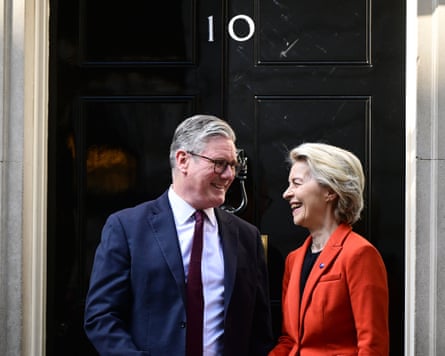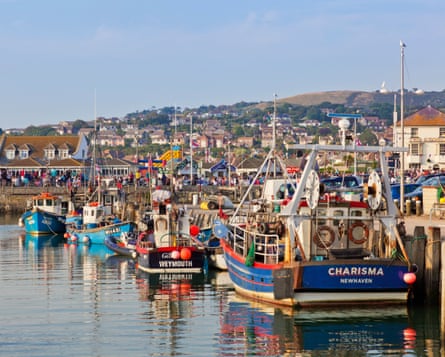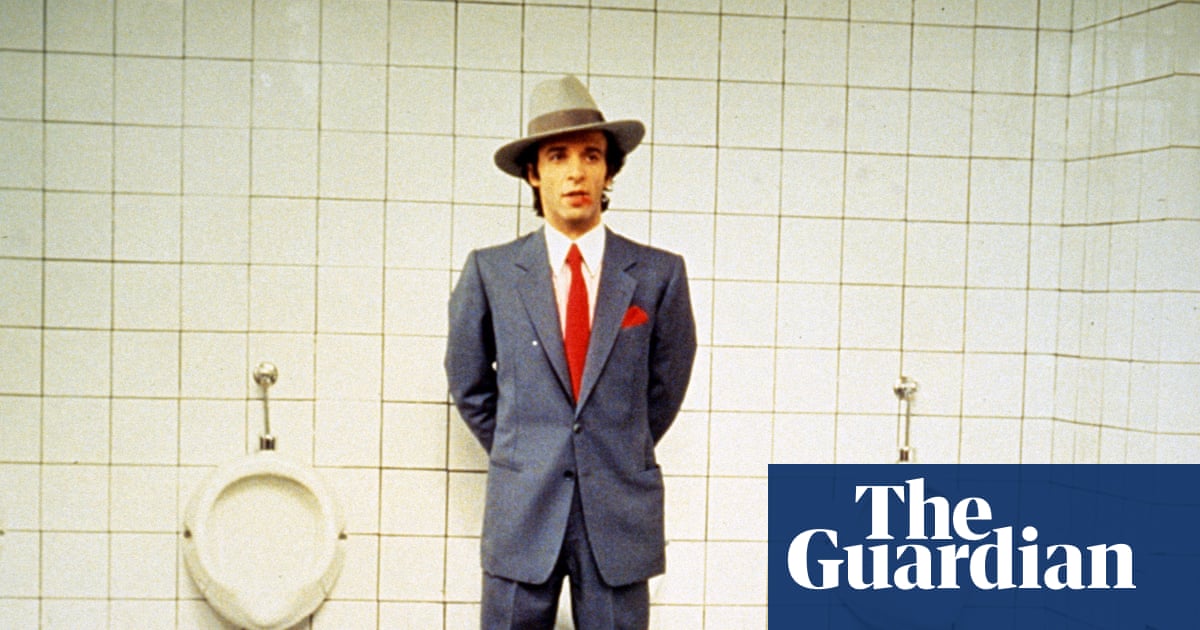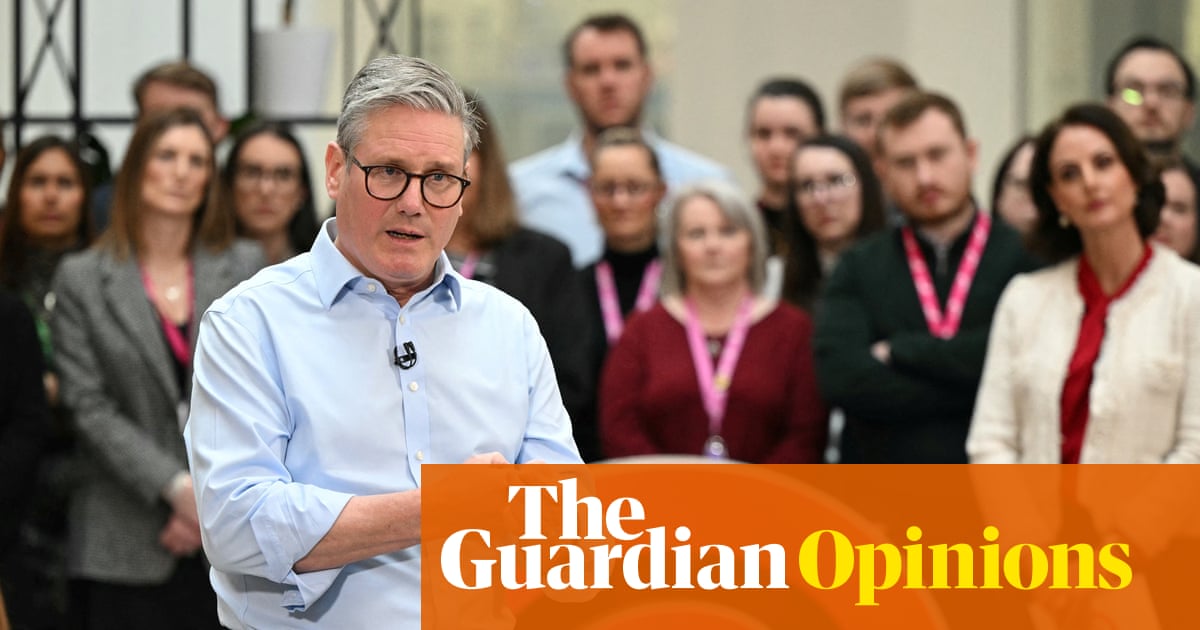For veterans of the Brexit years, such as Keir Starmer, the next 12 hours will feel painfully familiar. Negotiationswill go until the final hours. But this time, there is belief on both sides that things can be different.
For the UK, Monday’s UK-EU summit is the most crucial piece of the three-part jigsaw to unlock growth, after the recent deals with India and the US.
Taken together, there are high hopes it will be a critical signal that the UK has fundamentally changed, drawing a line under the Brexit years and Conservative leadership putsches – and can show the world a stark contrast to Donald Trump.
In a timely demonstration of that shift, when the shadow Cabinet Office minister Alex Burghart promised that the Tories would reverse any changes to the Brexit deal once back in power, he was greeted by open laughter from the government benches.
Central to this has been the relatively low-key nature of the negotiations, away from hysterical rightwing front pages. “We will do this in a serious, pragmatic way, and we won’t rush to the nearest microphone every time there’s a twist or turn in the negotiation,” Starmer told the Guardian last week.
The prime minister is said to have privately promised the European Commission president, Ursula von der Leyen, that he would keep negotiations “in the room”, because the EU side had lost trust in the UK’s approach after the game-playing of the Boris Johnson era.
Starmer will host von der Leyen, the European Council president, Antonio Costa, and Kaja Kallas, the EU’s top diplomat, at Lancaster House on Monday but negotiations are expected to continue throughout the weekend.
There are three agreements expected to be produced, on defence, on trade, and statement of geopolitical solidarity.
But the texts are not yet agreed. In a highly unusual move, the EU ambassadors are meeting in Brussels on Sunday to agree to any further compromises on either side negotiated over the weekend, taking the deal down to the wire.
One senior Downing Street figure said the deal was “99% of the way there”, but added: “The last 1% is the most important.”
The UK defence secretary, John Healey, speaking during a trip to meet his European counterparts in Berlin and Rome, said: “There has been a period of hard negotiations. We’re at the last hard yards of the last hard days.”

Some in Brussels have briefed that the two sides are still much further apart than that, especially on security and fishing rights.
But no one expects a disaster that could kill off the reset, because the symbolism alone for both sides is too great. “It would be a failure of diplomacy and that won’t and can’t happen,” said one diplomat.
The summit will involve Rachel Reeves hosting smaller firms and major UK businesses for breakfast and then a reception in No 10, many of which have been hit by trade barriers.
Starmer will frame his EU reset as a break with the past, a moment to show how irrelevant the rows of the Brexit years now are and how a more stable, reliable UK can reap the rewards.
But with an insurgent Nigel Farage – the most dogged foe of the Brexit era – leading the polls, there is always the potential for a deal to be politically toxic.
“It is fraught with risk but I think we have a landing zone,” a No 10 source said of the comms battle to come. Another strategist said: “This is about seizing back control – on trade, on borders, on security – that is what people say time and time again that they want.”
Monday’s summit is expected to produce three texts – the first, a defence and security partnership. This will not yet allow British companies to bid into the €150bn defence fund, but could pave the way for it to do so in future.
The second will be an agreement on lifting some trade barriers, an area where fraught negotiations are continuing. The most consequential will be negotiations to reach that new agreement on agrifoods, made easier by signs the UK is willing to accept dynamic alignment with EU standards and a role for the European court of justice.
The final statement will be a political declaration of European solidarity. That will more than hint at a coming together in the face of international turmoil, the code often used for the actions of Donald Trump. On Thursday, the European trade commissioner, Maroš Šefčovič, repeatedly referred to the “paradigm shift” in global trade after meeting trade ministers.
There will be other topics for the negotiations, too. The most difficult is the youth mobility scheme – which will be called something different and opaque – and cooperation on energy policy and carbon border taxes.
The youth visa, which the UK wants to be capped and time-limited, is the area most fraught with political danger for Starmer, given the threat of Farage’s Reform UK. The UK hopes it will get extremely limited reference at the summit on Monday, with one No 10 source saying it would be in the “‘to explore at a future point’ bucket”.

The main issue holding up the final agreement is fishing rights, where arrangements are due to expire in June next year. The UK wants to extend them for another four years, while Brussels is pushing for a longer settlement.
France has been the main block, suggesting any food standards deal be similarly time-limited if the UK insists on such a short settlement. It has also been the card Paris has played to hold up any potential deal on security partnerships, senior British officials say.
It has echoes of the last days of Johnson’s Brexit negotiator, David Frost, whose trade and cooperation deal was negotiated and sealed on Christmas Eve 2020, when fishers felt they were collateral damage.
A deal on fish is ready to be swapped in exchange for the EU dropping its demands that any students arriving in the UK under a youth mobility scheme would be able to access studies on home fees, a red line for the UK.
That potential uncertainty of a time-limited deal on food standards, plus a bar to any deep security cooperation, would be a major loss for the UK, but any sign Starmer has compromised on fishing rights would be a political nightmare in an industry that was a central part of the fights of the Brexit years.
Starmer has taken a close interest in the law enforcement and data-sharing possibilities, linked to action on people-smuggling, and it would be a personal blow if that was not possible.
“I do want to work more closely together,” he told the Guardian last week. “I do want to ensure we get the best possible arrangements for data sharing. I’d like us to work more with Europol and put ourselves in a position where the UK can lead investigations in Europol, we’re very good at it. I know from my own experience that that’s the most effective way to get results.”
There has been a diplomatic offensive among EU member states in the days leading up to the summit. “The UK government is reaching out to various EU governments bilaterally to lobby and make sure things move smoothly,” an EU source said.

Starmer’s framing of the reset aligns closely with the public view on Brexit. “There are the headline numbers, which suggest the public view has substantially moved on Brexit. That’s true, they have,” one Downing Street strategist said. “But many of those voters who backed Brexit do not believe that they personally were wrong to do so. They believed politicians handled it badly.”
Public polling backs up this view; according to More in Common, 40% of people believe that Brexit could have worked well but the government handled it badly, compared with 36% who believe it could never have worked.
That rises to 68% of Reform UK voters – just 14% of them think Brexit has worked out well. Even among Labour voters, 37% believe that it was possible for it to have been a success. Just 9% of Leave voters have now changed their opinion to believe Brexit could never have worked.
Most Labour MPs are millennial remainers who are keen for the economic benefits of an EU reset. Many want the government to go even further: “I would love us to be aiming for something that looks and quacks like a customs union,” one MP said.
But an influential contingent of Labour MPs in Brexit-supporting seats are worried. “I think it might be possible to get support if defence is at the forefront. But my voters, who probably voted previously for Boris, are still pretty ideological about Brexit,” one MP in a Midlands seat said.
A Labour MP in a leave-voting southern marginal constituency said Starmer would need to show the same “quiet authority” on Europe that impressed in Washington. “People here know Brexit ‘hasn’t been delivered’ but they’re wary of us going backwards,” the MP said.
“It’s not about reversing the vote, it’s about leading with a plan that makes us richer, more and more secure. That’s what they want to see.” They added that while there was still scepticism around any kind of EU ‘reset’, voters were increasingly open to a pragmatic solution, especially one framed as strengthening the UK’s hand, not diluting it.
“They’re not crying out for Brussels, but they are crying out for competence after some of the domestic decisions we’ve made,” another MP in a Brexit-backing constituency said. “People want sovereignty. But they also want to be better off. We’ve had neither.”

.png) 3 months ago
81
3 months ago
81

















































